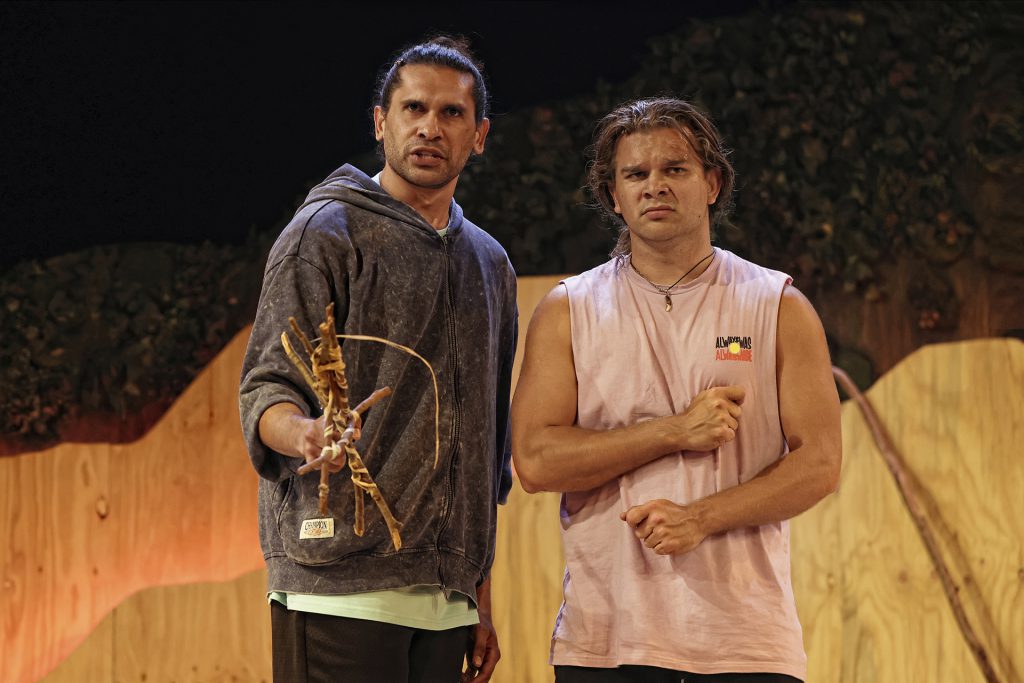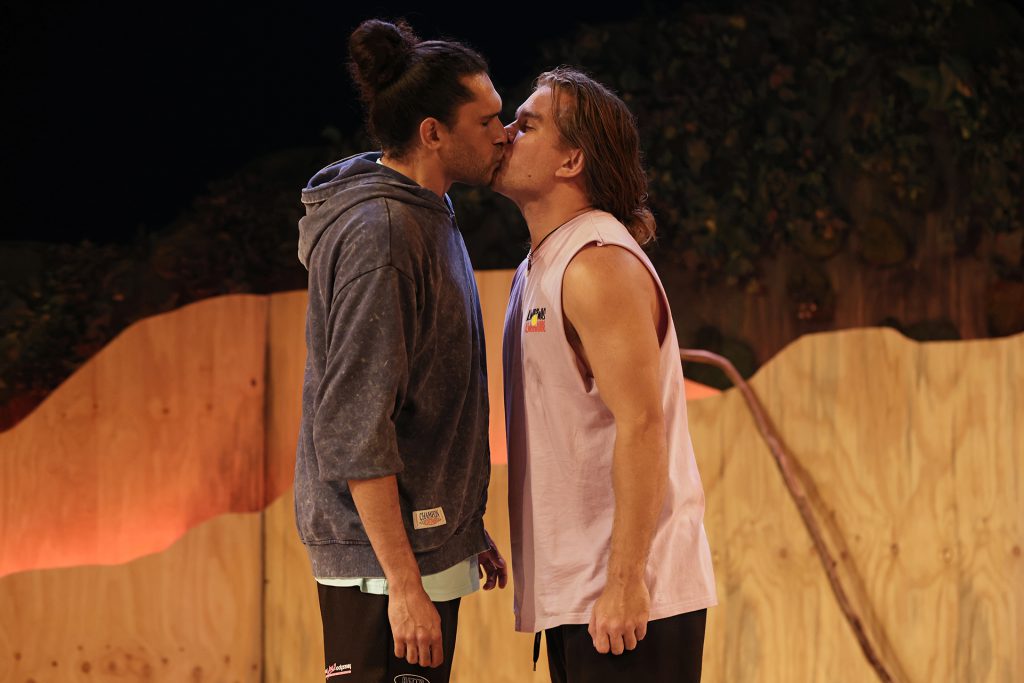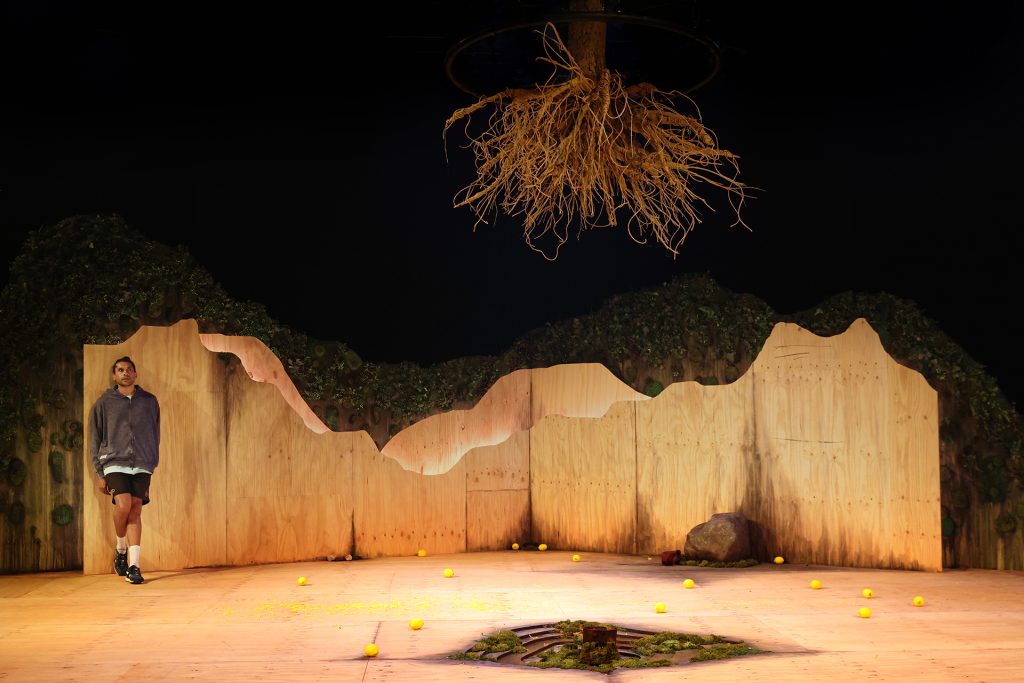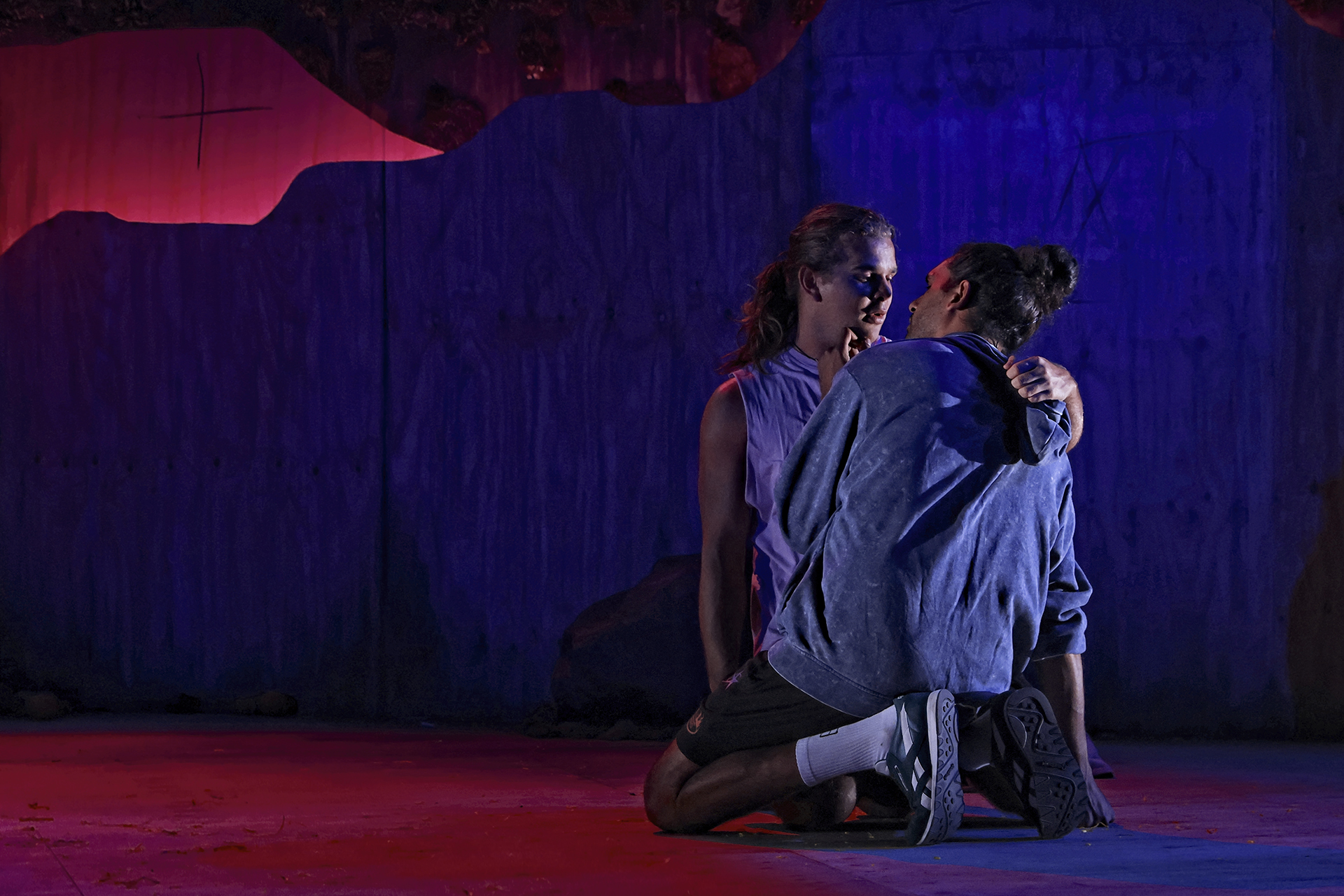A timeless story of growth, identity, and connection to land and each other.
Whitefella Yella Tree, first produced by Griffin Theatre Company in 2022, has been revived by Sydney Theatre Company. And rightly so. Its tender display of queer love, emotional development, and the resilience of First Nations people is engaging, unpredictable, and powerful. Aided by production elements that make the Wharf 1 performance space come alive, it leaves plenty to think about.

Whitefella Yella Tree is, at its base, a story about love. Set during the initial period of Australia’s colonisation, Ty (Joseph Althouse) is a young messenger for his mob. On his route he regularly meets Neddy (Danny Howard), a 16-year old from the neighbouring clan. The duo’s frequent run-ins initiates a friendship which leads to an intense romance, which is ultimately tested by Neddy’s assimilation into colonial society. This assimilation, the abandonment of culture it engenders, and Ty’s progression within his mob underlie a series of challenges for the lovers that affects their perspectives, personalities, and relationship with the land.

Althouse and Howard initially struggle to find the beats of Dylan Van Den Berg‘s script. Some of their early dialogue lands, but for the most part it feels like they are searching for its energy. Once they discover it, however, both give compelling performances while maintaining a strong chemistry. Althouse plays Ty with a thoughtful, sensitive disposition, making the most of the script’s stiller moments but capitalising on his role’s resentment towards the colonialists. Howard’s Neddy is much more verbose and forthright, injecting real aggression into his words. When the two come together it is electric. Their passion for each other is palpable, and their conflict later in the play is painful. One really feels their bond, and the powerful nature of their love.
Van Den Berg‘s script is clever. Richly layered with themes, codas, and symbolism, its greatest joy is its versatility. It indulges in ideas of queerness, sense of self, and worldview, sometimes individually and at other times simultaneously, but with a balance that gives such ideas equal expression and storytelling value. It develops both characters over the full course of the show’s 90 minutes and allows the narrative to unravel constantly. It is a great script; so much so that the conclusion almost feels abrupt, leaving the audience wanting more in the best way.

Yet, even though the performances and the script are strong, it’s the production elements that really make Whitefella Yella Tree shine. Directors Declan Greene and Amy Sole have created a set that lives and breathes. Its design (Mason Browne) reflects an arid Australian landscape, but the use of hidden lights and props make the space dynamic. The lighting design (courtesy Kelsey Lee and Katie Sfetkidis) pulsates to reflect the mood of a scene and the characters’ emotional states. The props are clever and unexpected, falling from above and specially endowed by the performers. The composition/sound design courtesy Steve Toulmin ties everything together, with resonant echoes, soft soundscapes, and tense amplification of key monologues. Despite the play only featuring two characters, the production elements show there is a third, hidden role: the Australian land.
Ultimately, Whitefella Yella Tree makes a real contribution to the Australian theatrical landscape. The story it tells, and the way it does so, is special. This will not be the last time it will be revived; just like love, and the strength of Australia’s Indigenous people, it will endure.
